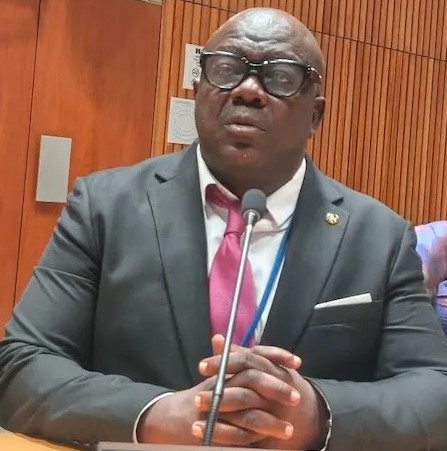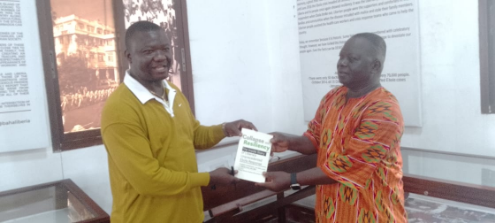Grand Kru County’s district #2 Representative, J. Fonati Koffa, Deputy Speaker of the House of Representatives, and other members of the House of Representatives have submitted for passage “An Act Prohibiting Female Genital Mutilation”; Mercy M. Kpaingbay reports.
According to a communication submitted to plenary of the House of Representatives by Deputy Speaker Koffa, the recent reversal of the landmark constitutional ruling in the United States of Roe V. Wade, majority of persons living in civilized democracies still believe that a woman’s right over her body is private right and may not be interfered with by the state or traditional institutions.
The communication also mentioned that it is the responsibility of Liberian democracy to protect the new and the weak, and it is now time to tackle the painful debate of harmful traditional practices, especially female genital mutilation “FGM”.
“FGM has enormous psychosocial and political implications far beyond the painful procedure usually practiced by non-medical personnel. Whereas here, the evidence is overwhelming that the costs of the traditional practices outweigh the benefits, and individual discrimination is meted out to one section of our society. We must act,” the communication stated.
According to the act submitted to plenary, female genital mutilation (FGM) involves the partial removal of external female genitalia or ordinary injury of the female genital organs for non-medical reasons, and the practice has no health benefit for girls and women.
In furtherance, the act started that more than 200 million girls and women alive today have undergone FGM in 30 countries in Africa, including Liberia, the Middle East and Asia, where FGM is practiced, and FGM is mostly carried out on young girls between infancy and age 15. The act described this as the violation of the human rights of girls and women.
The act stated that the offense of female genital mutilation includes aggravated female genital mutilation, attempt to carry out female genital mutilation, procuring female genital mutilation, practicing in events leading to female genital mutilation, parents, guardians, husband or a person having authority or control, consent of victim and culture or religion not a defense to female genital mutilation.
The act further noted that offense of female genital mutilation means a person who carries female genital mutilation commits an offense and is liable for conviction and imprisonment not exceeding ten years.
The act also intimated that aggravated female genital mutilation means committing the offense of aggravated female genital mutilation, where death occurs as a result of female genital mutilation; the offender is a parent, guardian or person having authority or control over the victim, and that victim suffers disability.
“Female genital mutilation is done by health worker, a person who commits the offense of aggravated female genital mutilation, and is liable for conviction to ten years imprisonment. A person who participates in any event leading to female genital mutilation commits an offense and is liable for conviction to imprisonment not exceeding five years,” the act further explained.
In addition, the act asserted, “Where the offender in section 5,6, or 7 is a parent, guardian, husband or person having authority or control over the victim, the offender is liable on conviction to imprisonment not exceeding eight years.”
The act noted that culture and religion are not a defense to female genital mutilation, and any culture, custom, ritual, tradition, religion or any other non- therapeutic reason shall not be a defense under the act.
The act was introduced by J. Fonati Koffa, district #2, Grand Kru County, and co-sponsored by Representative Thomas A. Goshua, district #5, Grand Bassa County; Isaac B. Roland, district #3, Maryland County; Richard N. Koon, district #11, Montserrado County; Rustolyn Suakoko Dennis, district #4, Montserrado County; and Ceebee C.D. Barshell, district #3, Montserrado County. Meanwhile, a motion was made by Representative Acarous M. Gray that the communication be sent to the committees on Internal Affairs and Judiciary and copies be made available to the 73 members of the House of Representatives to take to the various constituents for further consultation during the July 26th break.







